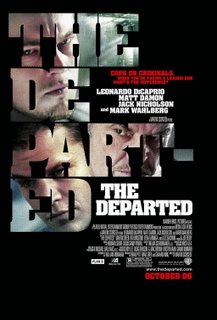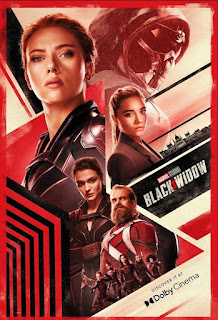Puss in Boots: The Last Wish (Joel Crawford, Januel Mercado, 2023) In a recent podcast I was participating in, one of the other folks mentioned that she'd seen Puss in Boots: The Last Wish. "Trust me," she said "You'll want to see this." I remember being a bit skeptical, but made a note that I should see it at an early opportunity.
I didn't—although even at this late date (it having been released to streaming and on DVD, Blu-Ray and 4K) it is still possible. And I regretted it, after I watched it. It is good. It's hilarious in places, even.
But, I didn't know—until I started pulling screen-shots for this post—that what Dreamworks Animation, and directors Joel Crawford, Mercado and crew were doing with this film was something quite extraordinary. I doubt most people will notice it (or even care) and instead concentrate on the laughs and entertainment value, which is indeed considerable. But, what I noticed is a bit revolutionary while simultaneously not. I'll explain after a plot summary.Puss (voiced, again, delightfully, by Antonio Banderas) is in the city of Del Mar being feted by the townspeople, when the song and dance and ego are interrupted by the presence of a large giant who starts menacing the town. Utilizing one of the musicians' bass strings, the "Stabby Tabby" launches himself at the creature and proceeds to do battle with it in a proximity that the thing just can't handle. Ultimately, Puss escapes death a dozen times and dispatches the horrid beast...only to be crushed by a large brass bell that the cat (who might have resented being belled in the past) used to subdue it.
But, no, Puss wakes up in a doctor's office, a little shaken but defying the cartoon-logic that he's a flat as a pancake or has a bell-shaped divot in his body. Although he has trouble remembering, the doc asks how many of his traditional nine lives Puss has gone through. A quick montage of Puss dying in stupid and Darwin Award qualifying ways...eight times. It seems Puss is living his last life now, and the doctor advises he give up...well, everything he's doing...and go retire with an old cat lady and attempt to die of old age.
He decides against that until he sits in a kitty-bar—lapping milk, of course—when a tall, dark stranger appears sitting next to him. It's a bounty hunter, Lobo (Wagner Moura) and as wolves go, he's a "Big Bad" right down to the hairs on his chinny-chin-chin, dressed much like The Grim Reaper—right down to the scythe accessories he sports. He's a bounty hunter, but a particularly chatty one, full of complimentary talk about reputations and that sort of thing, but it's merely trash-talk as he's come for a fight and—being a representative of Death—knows he has to win eventually.It's a lovely little conceit, but then the "Puss" and "Shrek" series have always been the most fun skewering fairy-tales and casting their tropes in different lights. The Big Bad Wolf, mainstay as he is in fairy-tales, of course, could be seen as some sort of opportunistic stalker, if you want to put it in an anthropomorphic, modern context, and here he's such a presence that he makes a fine foil for the Cat's foil, and intimidating enough that Puss does, indeed, retire to a cat-lady's house, where the sight of a litter-box makes him gag. "So...this is where dignity goes to die."The plot involves Puss, a chihuahua-in-cat's-clothing named Garrito (Harvey Guillén)—who was stowing away at the cat-lady's— as well as Puss former fiancee, Kitty Softpaws (Salma Hayek), who are hired by soldiers-of-fortune Goldilocks (Florence Pugh) and The Three Bears Crime Family (Ray Winstone, Olivia Colman, and Samson Kayo, all delightful!) to steal the legendary Wishing Star for that talisman-collecting Baker-turned-Crime Boss "Big" Jack Horner (Imagine John Mulaney
saying "Well, You know what they say—Can't bake a pie without losing a dozen men!" Yeah. He's hilarious.), even with the constant threat of Lobo/Death ("Why the hell did I play with my food?") lurking nearby.It is, quite frequently, laugh-out-loud funny (especially if you co-habit with a cat*), not only because the material is inspired but the voice-actors are hilarious doing it. Pugh, Colman, Winstone, and Kayo all play their parts like they've just come over from "Eastenders" and their quick-bickering banter is fast and a little furious—they're all about "family." If your family is "The Sopranos."Now, what's special about this here Puss in Boots flick is the art. Dreamworks Animation has always been a little bit behind the curve when it comes to their CGI animated features—remember the play-dohish Shrek?—pushing towards verisimilitude and life-like imagery, long after Pixar gave it up starting with Geri's Game in 1997. Now, after the envelope-pushing example of Spider-Man: Into the Spider-verse (which made an example of "playing it rough") they're giving it up.
Blow up any of the images on this page, and you'll see less attention to detail, and more to "the feel" of the thing. Just as realism and romanticism gave way to neo-realism and impressionism, the new crop of animators have discovered that you can do more with less. Here, the images are smeared, like paintings...or the way the old matte artists used to crate camera-realistic landscapes from just "blobs" of paint. Disney went through a "rough" phase of animation in the 1950's, but that was usually due to budgetary reasons. But, this is deliberate. And it is beautiful.One wondered why Puss in Boots: The Last Wish was on the short-list of animated feature Oscars this year, but all questions are pushed aside after seeing the work. The best way to end this post is to post a few more images with the advice that one should skip the home-viewing and side this on the big, big screen.
* Mine (who is nameless), who loves a good Nature program about lions on the Serengeti, scornfully ignored this one, turned her back and went to sleep with a dismissive scowl on her own puss.




















































